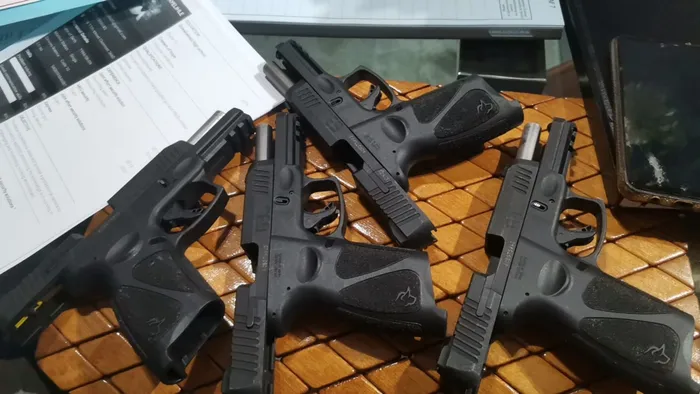
The South African Gunowners’ Association (SAGA) says the firearms industry must not be left out of any crucial discussions regarding possible amendments to the Firearms Control (FCA).
Image: File
The South African Gunowners’ Association (SAGA) says the firearms industry must not be left out of any crucial discussions regarding possible amendments to the Firearms Control (FCA).
The association was responding after it said it had been made aware of an internal notice from the National Economic Development and Labour Council (NEDLAC) to Business Unity South Africa regarding the Firearms Control Amendment Bill.
SAGA said in a statement that while NEDLAC had engaged business, labour, and community stakeholders, “no formal consultation with representatives of the firearms industry has taken place,” despite the sector’s direct stake in the legislation.
The association warned that the exclusion undermines transparency and risks producing laws that are “unbalanced, impractical and unenforceable.”
The group further stressed that the firearms sector contributes to economic activity and employment, particularly in rural areas where hunting and related tourism are vital sources of income.
Ian Cameron, DA spokesperson on police and chairperson of Parliament’s Portfolio Committee on Police, said that public participation was non-negotiable in matters of national safety.
“The Firearms Control Amendment Bill is not just another piece of legislation, it directly affects constitutional rights, livelihoods, and safety. To exclude the firearms industry from formal consultation is unacceptable and undermines the credibility of the entire process,” Cameron said.
He added that Parliament’s committee would prioritise inclusive engagement. “We cannot allow legislation of this magnitude to be bulldozed through without input from those most affected,” he said, emphasising that transparency in law-making was essential to public trust.
Cameron argued that government should focus its energy on fixing existing shortcomings in firearms management rather than pushing through ill-considered amendments.
“The failures of the Central Firearms Registry and the SAPS in managing firearms has been well documented. Addressing corruption and inefficiency in those systems would go much further in improving public safety than arbitrary restrictions on law-abiding citizens.”
Security and policing analyst David Bruce, from the Institute for Security Studies (ISS), also weighed in, highlighting the need to identify areas of potential agreement on firearm regulation.
“At the moment the main thing that we are interested in is trying to find where there is possible common ground around better control of firearms,” Bruce said.
He pointed to institutional weaknesses that undermine firearm control.
“Issues here include the need to get the Central Firearms Registry working properly including tackling corruption in the administration of the CFR. Also getting to the bottom of questions about the sources of illegal firearms. The SAPS should be able to provide much better information on this issue than it is currently doing and this should inform further steps that are taken.”
Bruce added that while there may be potential consensus around amendments, clarity on shared priorities was still lacking.
Related Topics: